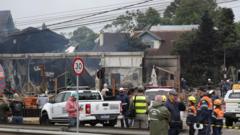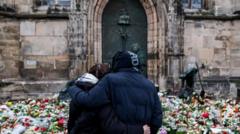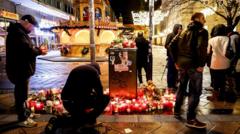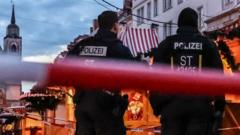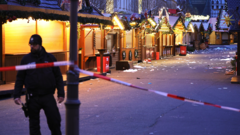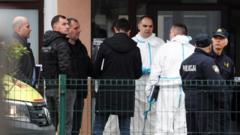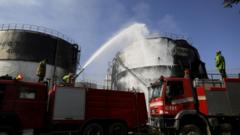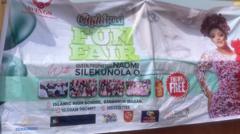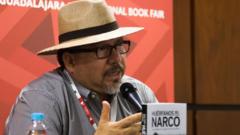The assault of Israeli fans by a group in Amsterdam amid a football match has raised alarms regarding antisemitism and public safety. Local officials faced criticism over their ability to control the violence, which some deemed premeditated, while others pointed to tensions stemming from recent regional conflicts.
Rise in Violence Against Israeli Fans in Amsterdam Sparks Concerns Over Security and Antisemitism
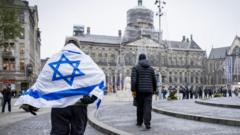
Rise in Violence Against Israeli Fans in Amsterdam Sparks Concerns Over Security and Antisemitism
A reported assault on Israeli football fans in Amsterdam highlights broader issues of antisemitism and security, prompting strong reactions from city officials and community leaders.
In the midst of a Europa League match between Maccabi Tel Aviv and Ajax, violence erupted against Israeli football supporters in Amsterdam. According to 24-year-old fan Adi Reuben, he and his friends were assaulted by a group of over ten young men who reportedly shouted phrases like “Jewish” and “IDF” while attacking him as he walked to his hotel. Reuben recounted falling to the ground, sustaining a broken nose, and noted that the attackers, who chanted “Palestine,” did not appear to fear consequences for their actions.
Pnina, another supporter, echoed Reuben's sentiments, suggesting that the violence felt orchestrated. Dutch media reported that multiple Israeli fans sought refuge in local hotels for their safety during the unrest, with Esther Voet, editor of a Dutch Jewish newspaper, offering her home as a sanctuary.
Amsterdam's police department confirmed the occurrence of what they described as "hit-and-run" attacks primarily carried out by youths on scooters targeting Israeli supporters. Police Chief Peter Holla expressed astonishment at their inability to contain the violence despite a heavy police presence in the city. Acknowledging injuries among the fans, Holla outlined how police took measures to group the supporters for their protection and to transport them safely from the area.
The violence followed previous altercations between Maccabi fans and city residents, including an incident where fans attacked a taxi and burned a Palestinian flag. Tensions rose further during the week leading up to the game, which increased concerns regarding the juxtaposition of sport and local conflicts.
Amsterdam Mayor Femke Halsema stated that the incident underscored rising antisemitism exacerbated by the ongoing Israeli-Palestinian conflict. She denounced the violence, likening it to historical injustices experienced by Jewish communities, and acknowledged the damage inflicted upon Amsterdam's cultural integrity.
While acknowledging that the Maccabi fans did not initiate violence, some of them have faced scrutiny for previous aggressive behavior, including racist conduct toward Palestinian teammates. Halsema made it clear that such incidents should not be conflated with the actions of the broader fanbase, as she condemned both the premeditated attack and the systemic issues surrounding the escalation of antisemitism within the city.
The ordeal serves as a stark reminder of the connections between sporting events, cultural tensions, and the broader implications of geopolitical conflicts that resonate even in urban centers like Amsterdam.



